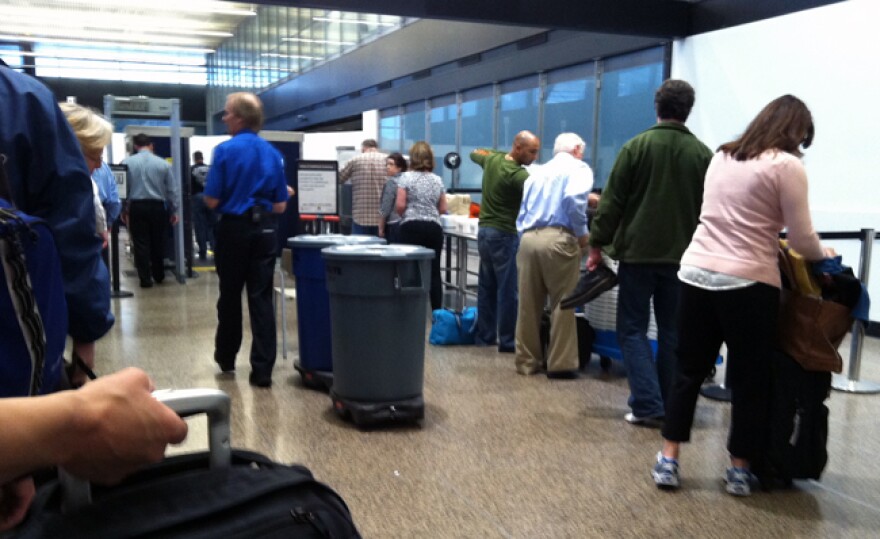The Transportation Security Administration has been quietly replacing passenger-screening machines at some of the nation’s largest airports. The TSA has been moving them to smaller airports and replacing them with security scanners that don’t use X-rays.
Seattle-Tacoma International Airport has been left out of the movement away from the controversial scanners.
TSA officials say the agency is replacing the X-ray machines known as backscatter scanners to help reduce the long lines at busy airports. The newer machines, known as millimeter-wave scanners, are smaller. Airports can squeeze more of them in and screen more passengers at once.
Sea-Tac Airport has 14 of the big backscatter scanners at its security checkpoints. TSA says it has no plans to replace those scanners. The new machines have all gone to bigger airports, including those in Boston, Charlotte, Chicago, Los Angeles, Orlando and both LaGuardia and JFK in New York City.
Seattle Port Commissioner John Creighton is calling on TSA to replace Sea-Tac’s body scanners as well. The commission oversees Sea-Tac Airport. Creighton says he’ll ask his five-member commission and the state’s Congressional delegation to pressure the TSA in January.
“If we had technology that had no question about it, that everyone was comfortable with, we could have much more efficient security lines at the airport,” Creighton says.
The newer millimeter-wave machines don’t have the same privacy or radiation concerns that the X-ray machines do. They use radio waves, not X-rays, and they only generate a vague, gender-neutral human image, a bit like a gingerbread man. Any indications of possible weapons or explosives are highlighted on the vaguely human image.
TSA says the radiation dose a passenger gets inside one of their X-ray scanners is about the same as a passenger gets by flying in an airplane for just two minutes. A TSA video playing on an endless loop tries to assure passengers shuffling through security at Sea-Tac that they don’t need to worry about their privacy or safety.
[asset-audio[{"description": "", "fid": "1591", "uri": "public://201212/Tsa-video-excerpt.mp3"}]]
All images are immediately deleted and cannot be printed, stored or transmitted. In addition, a privacy filter is applied to blur all images to the protect the passenger’s identity. The use of imaging technology presents no health or safety concerns for any passenger, including children and pregnant women.
TSA screens nearly 2 million passengers a day nationwide. As ProPublica has reported, some scientists say even tiny doses of X-rays could cause a small number of cancer cases, given such widespread use of the scanners. The European Union prohibited the X-ray scanners last year.
TSA announced on Dec. 18 that it is hiring the National Academy of Sciences to conduct an independent study of the health effects of the backscatter X-ray machines.


